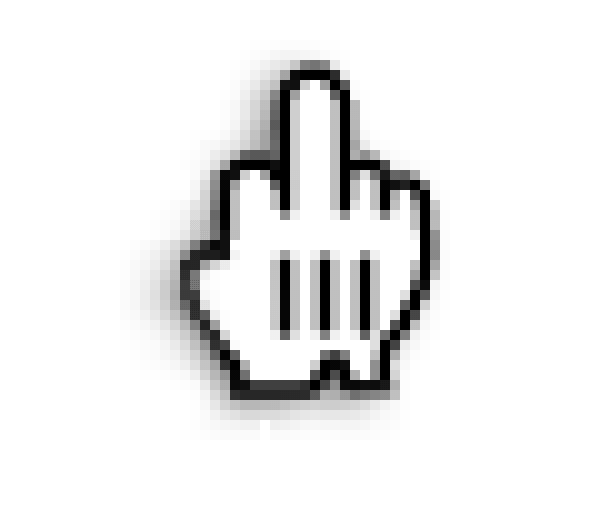The most influential companies in the world put all their energy into getting us to click, react, and consume. If you work on a computer, procrastination awaits you everywhere, all the time. How do you beat it and get things done?
There is procrastination1 as in everyday trouble to get started. There is procrastination as in trouble finishing things. And there is procrastination as a weeklong, monthlong, yearlong, self-harming self-torture.2 The first two are annoying but common. The last one can threaten your very existence.3
If you are doing just fine but you sometimes just can’t get started or avoid finishing your tasks, there are simple techniques to get started.
1. Understand the word
Words we don’t understand work like a spell. Understanding the words is the first step to breaking their magic. The word procrastination sounds long, winding, sophisticated, complicated, and hard to crack. It’s as if it was artfully coined not to be understood. Procrastinating means you’re delaying: “Pro crastinus” means “for tomorrow”. How do you avoid delays? By starting. How do you start?
2. Break it up
If you procrastinate, you don’t do anything refined, mysterious, or scientifically inevitable. You delay. You delay starting. Or you delay finishing things. Do you want to overcome your delays? Thinking is the first thing we avoid. Thinking is highly unpleasant. But it’s necessary to get oversight and prepare the right action.
Split your work into reasonable chunks. Get started choosing the least painful, then choose the next. Finish task by task. Why think, why not just race in? You think to prepare. Don’t hack away, sharpen the axe before cutting the tree.

3. Find inspiration (don’t wait for it)
Inspiration can come at unexpected times. But usually, it involves an activity like talking to someone, walking, showering, and, yes, going to the toilet.
Don’t wait for inspiration. It comes while one is working.” –Henry Matisse
Most often, you find inspiration when you are already at work. Literally, “in-spiration” means “breathing in.” To get inspired, take a breath and start.
Go after [inspiration] with a club.” –Jack London
4. Separate procrastination and addiction
Your well deserved cigarette break4 or your needed glass of Bordeaux won’t load your batteries. Unless you are already working, and you have gotten tired from working, resigning to your addictions will not start or speed you up. Consuming consumes your attention.
Lying to yourself about that will exhaust and depress you even more. Fighting addiction and procrastination is a two-front battle that you will most likely lose.
5. Get active
Even if you are not addicted, taking a passive, energy-draining time-out like drinking alcohol, smoking, watching your series, or browsing /r/wtf/ will not get you in the mood. It will delay things. It will shorten your time, increase the stress and wear you out. The only excuse to do something other than the thing you need to do is do another thing on your list.
Most of the tech industry is designed to turn you into a vegetable. They invite you to click on things until you click ads, and then they try to make you click ads until you click buy. Since many of us work on the screen, it can be confusing to discern between consumption and production. Here is a guideline:
- No one came back from YouTube feeling fresh and energized.
- No one peeled out motivated and happy after two hours of scrolling through Instagram.
- No one ever got inspired to finish things up after a Netflix Bonanza.
- Buying some stuff online is not very productive. It’s consuming.
You still can’t find the spark to get the fire started? Giving yourself an excuse to consume is pouring water on your matches.
6. Change perspectives
Yes, your body is constantly playing tricks on you. Yes, it fools you into believing what isn’t the case. It blinds you from seeing what is. And it directs you to get fast rewards.
Your reward system is getting hacked, and you are being made a slave of yourself. And before you know it, you’re on a circus bike in a psychodrome, racing in circles, and you don’t know how to slow down without falling on your helmet. Now, that’s one way to describe it. Attributing your delays to some unalterable biochemical processes and giving them scientific names will make your delaying seem scientifically inevitable.
Yeah, but really, a science is one perspective on the world. Biology, physics, chemistry… each is just one way to look at and describe reality. Don’t let your inner neuroscientist discourage the unmeasurable, unweighable, uncountable free philosophical self inside you.
You are more than the sum of your cells. And you are not a dog. You don’t need to run after every stick that flies through the air.
7. Face the truth
Do you think that there are some complicated fears of failure deep down, maybe holding you back with their invisible tentacles? So, that’s why you need to first check out some videos of stupid people lighting their ghost jalapeño farts? Do you think ghost jalapeño farts will get you on track? Here are three more exercises that have never ignited any meaningful action:
- Checking up on old lost friends on Facebook
- Being jealous of people that seem happy
- Pretending to be morally offended
- Pretending to be good looking
- Pretending to be productive
- Pretending to be successful
- Discussing with strangers
- Pretending to be healthy
- Pretending to be amused
- Pretending to be funny
- Reading the comments
- Reacting to comments
- Pretending to be rich
- Pretending to care
- Reading the news
- Reading tweets
- Liking tweets
- Pretending
If you work, you need breaks… If you work at a screen, a break means getting away from the screen. When? How often? How long? Depending on what you do and as you feel fit. Some need to stop every 25 Minutes. Some can work for 40 Minutes.5
So, what’s the trick?
There is no other trick to do what needs to be done—other than getting started. If you still think about your task and…
- …you don’t know where to begin…
- …you feel like you’re being suffocated…
- …you imagine that someone is holding a fork right in front of your throat and if you take just one step…
…then is the time to take that step and discover that there is no fork.
Once you have gotten started, most things that seem unbearable or impossible turn out to be just something you do. And most likely, making the dishes, making that call, writing that mail turns out to feel good. Moving from passive to active feels good. Making order out of chaos is liberating. Getting stuff done feels great.
Turn your attention away from consumption to an active task, no matter how minor. Don’t ask yourself if you feel like doing it. Do it and do it right so you feel it. And then, when you are done and still in motion—do not take a pause. Do that other thing that was suffocating you before, right after.
Procrastination sounds sophisticated, complicated, and hard to get out of. Deep procrastination is a serious problem that needs outside help. Common procrastination is an ubiquitous glittering lure but it is not that big of a deal. It just means that you delay something a bit unpleasant for something a bit more pleasant. And if you want to move forward, whether it’s in an estimate, a design, or a text—don’t wait until you feel like it. To overcome delays: get started. Now.
Footnotes
-
Merriam Webster: “English speakers borrowed the word in the 16th century from Latin procrastinatus, which itself evolved from the prefix pro-, meaning ‘forward,’ and crastinus, meaning ‘of tomorrow.’ ↩
-
“Over time, chronic procrastination has not only productivity costs, but measurably destructive effects on our mental and physical health, including chronic stress, general psychological distress and low life satisfaction, symptoms of depression and anxiety, poor health behaviors, chronic illness and even hypertension and cardiovascular disease.” Why You Procrastinate, NYT. ↩
-
If you are in a self-torture spiral that you can’t get out of by yourself, get help. You are likely avoiding reality to not deal with yourself. You are occupying your mind so it doesn’t need to hear itself. Don’t feel ashamed about it. Admit it to yourself, get help, and get well. It’s more common than you think. ↩
-
What, smoking does help you? Let an experienced smoker refresh your memory of what happens when you smoke: “The short-term effects of tobacco are a momentary stimulation followed by a state of withdrawal and reduced brain activity, bad breath, fatigue, and dizziness, dulling the senses of taste and smell, coughing, shortness of breath, increased blood pressure, increased heart rate, decreased blood flow, nausea, headaches.” Maybe you’re special. –Quit Smoking, CBQ ↩
-
“The frequency of your break depends, too, on what you’re doing. Coding is very different from emailing, which is different from writing. As long as you stay within the guardrails of 90 minutes, you should be okay.” When, How, and How Often to Take a Break, Inc. ↩








